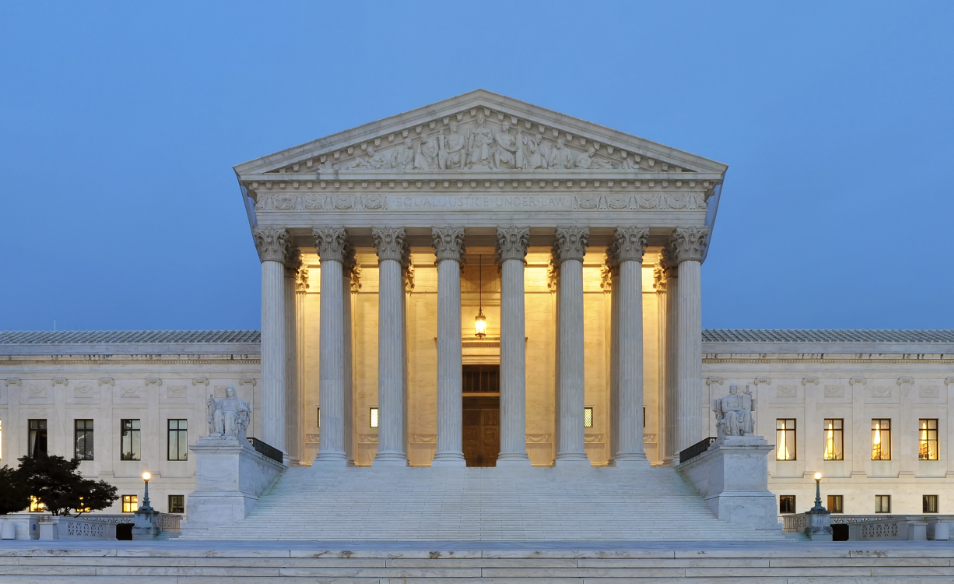Supreme Court Delivers BOMBSHELL Jan. 6 Ruling

In a move that could benefit former President Donald Trump, the U.S. Supreme Court ruled on Friday in favor of a former police officer seeking to dismiss an obstruction charge for his involvement in the Capitol riot on January 6, 2021.
Joseph Fischer, one of many defendants, including Trump, charged with obstructing an official proceeding to prevent Congress from certifying President Joe Biden’s election win, secured a 6-3 victory from the court.
The court determined that the law, part of the Sarbanes-Oxley Act of 2002, originally intended for cases involving the manipulation of physical evidence, was not applicable in this situation.
The court returned the case to the lower courts to reassess whether the Justice Department can still prosecute Fischer under this new legal interpretation.
The specific statute, 18 U.S. Code 1512, carries a potential 20-year prison sentence.
“To what extent the ruling favors Trump remains to be seen. Even if Fischer prevails in the case against Trump, prosecutors claimed that a stricter interpretation of the law would still apply to Trump’s actions. Fischer faces seven criminal charges, only one of which was the focus of the Supreme Court case. Even if the obstruction charge is ultimately dismissed, the other charges, including assaulting a police officer and entering a restricted building, will remain in place,” NBC News reported.
“The court, which has a 6-3 conservative majority, has in the past been skeptical of prosecutors when they assert broad applications of criminal provisions. In his election interference case, Trump faces four charges, including one count of obstructing an official proceeding and another of conspiracy to do so,” the outlet added.
In another decision, the U.S. Supreme Court upheld an Oregon city's policy that prohibits people without permanent residences from sleeping outside, ruling that it does not violate the Eighth Amendment’s ban on “cruel and unusual” punishment.
Chief Justice Neil Gorsuch authored the 6-3 opinion. The dissent came from the three liberal justices, as reported by ABC News.
“Homelessness is complex. Its causes are many. So maybe the public policy responses required to address it,” Gorsuch wrote. “At bottom, the question this case presents is whether the Eighth Amendment grants federal judges primary responsibility for assessing those causes and devising those responses. It does not.”
Justices Elena Kagan and Ketanji Brown Jackson joined Justice Sonia Sotomayor in dissent, arguing that the ordinance penalizes homeless individuals who have no other options.
“It is possible to acknowledge and balance the issues facing local governments, the humanity and dignity of homeless people, and our constitutional principles,” Sotomayor wrote. “Instead, the majority focuses almost exclusively on the needs of local governments and leaves the most vulnerable in our society with an impossible choice: Either stay awake or be arrested.”
“The Constitution provides a baseline of rights for all Americans, rich and poor, housed and unhoused,” Sotomayor said.
The Supreme Court has been busy this week as the term nears an end.
On Thursday, the Supreme Court ruled that, to comply with a federal requirement for emergency rooms to provide “stabilizing treatments” to patients in severe condition, doctors in Idaho must be allowed to perform emergency abortions, despite the state’s near-total ban.
The Court invalidated stays issued earlier this year and determined that writs of certiorari in two legal matters were “improvidently granted,” as stated in an unsigned opinion. The case may return to the Supreme Court as it continues to be heard in lower courts.
A draft of the ruling was accidentally posted on the court’s website on Wednesday before being removed. The final opinion, issued Thursday, mirrored the draft with a few minor changes.
Chief Justice Roberts, Justice Brett Kavanaugh, and Justice Amy Coney Barrett concurred in the rare decision, with the Court stating “because the shape of these cases has substantially shifted” since granting certiorari, according to Fox News.
However, Justice Clarence Thomas, joined by Justice Samuel Alito, criticized the ruling as “baffling.”
“Recognizing the flaws in the Government’s theory and Idaho’s ‘strong’ likelihood of success, this Court stayed the preliminary injunction pending appeal on January 5. And, wisely or not, the Court also took the unusual step of granting certiorari before Idaho’s appeal was heard by the Ninth Circuit. Now the Court dismisses the writ and, what is worse, vacates the stay,” Alito wrote.
“This about-face is baffling,” he continued. “Nothing legally relevant has occurred since January 5. And the underlying issue in this case—whether EMTALA requires hospitals to perform abortions in some circumstances—is a straightforward question of statutory interpretation. It is squarely presented by the decision below, and it has been exhaustively briefed and argued.”
“Altogether, we have more than 1,300 pages of briefing to assist us, and we heard nearly two hours of argument,” Alito added.
“Everything there is to say about the statutory interpretation question has probably been said many times over. That question is as ripe for decision as it ever will be. Apparently, the Court has simply lost the will to decide the easy but emotional and highly politicized question that the case presents. That is regrettable,” Alito said.